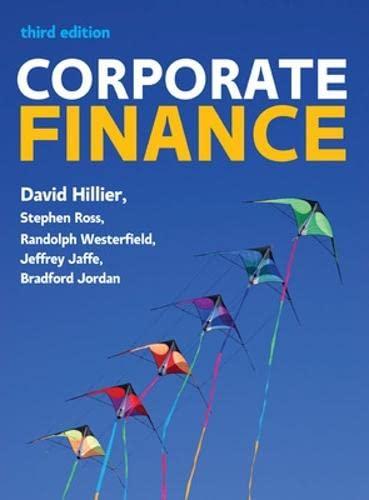In many countries, regulators have moved to ban an activity called equity short-selling. In order to sell
Question:
In many countries, regulators have moved to ban an activity called equity short-selling. In order to sell equity short, a trader would open an account with a broker, borrow shares from existing shareholders for a fee and promise to give them back at some point in the future.
Short-selling is normally used as an effective hedging tool. However, it can also be used to speculate against future falls in prices.
The practice of short selling came under intense scrutiny when it was blamed for the collapsing share prices of banks in 2008. Regulators argued that hedge funds were contributing to the collapse in share prices by irrationally forcing them down below their true level. As bank share prices imploded, there was clear evidence that many banks had very high levels of short selling. As a result, the British government imposed a short-selling ban on 18 September 2008 until 16 January 2009. Other countries imposed similar bans.
If share prices were forced down by a small number of hedge funds (and their short-selling followers) purely because of speculative activity, it would be clear evidence against the efficient market hypothesis.
1. Visit Yahoo! Finance and download the share prices of five British banks for the dates 1 August 2008 to 31 January 2009. Also download the FTSE 100 index for the same period.
2. Track each bank’s share price before the ban, during the ban, and after the ban. Do the share price movements support the view that the market was irrationally depressed because of speculative activity?
3. Carry out your own investigation of short-selling in Europe. How did other European governments deal with the short-selling controversy?
4. Write a report about the short-selling controversy in the context of the efficient markets hypothesis and behavioural finance. What does it say about the validity (if at all) of either theory?
Step by Step Answer:

Corporate Finance
ISBN: 9780077173630
3rd Edition
Authors: David Hillier, Stephen A. Ross, Randolph W. Westerfield, Bradford D. Jordan, Jeffrey F. Jaffe





